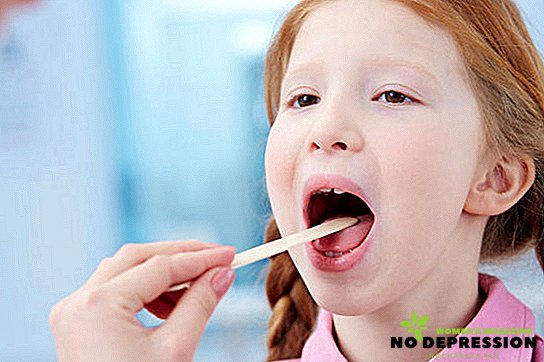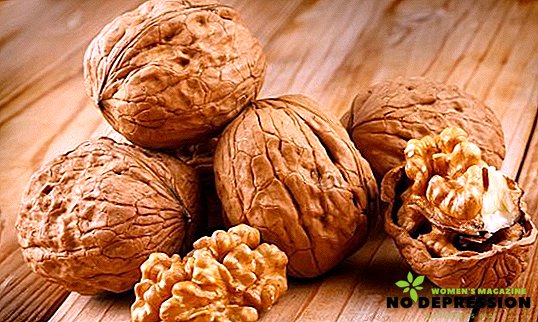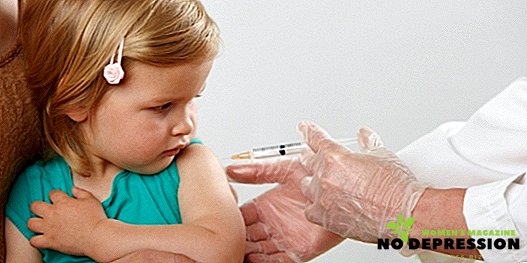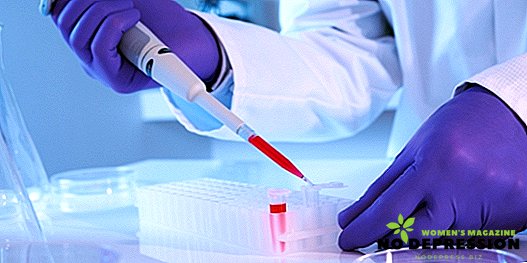Hawthorn is a tall shrub that has been known for its beneficial properties since ancient times. The plant is widely used to treat diseases of the heart and vascular system, as well as for preventive purposes. With its help it is possible to normalize the pressure and the process of digestion, as well as to cope with nervous overstrain. The fruits of the plant have a sweet and pleasant taste, so they are used in cooking for making sweets, baking and wine.
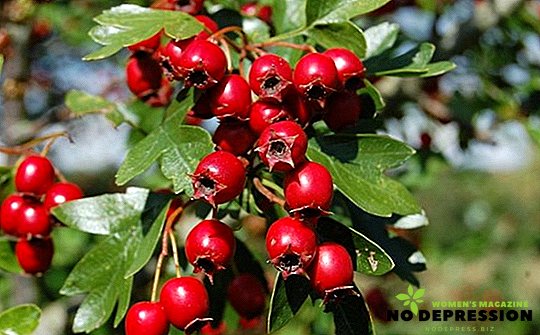
Hawthorn: useful properties
Hawthorn contains a large amount of organic acids, and among them, ursolic and chlorogenic acids have a special biological activity. In addition, the plant contains many carbohydrates, vitamins and tannins, and the berries are rich in phytosterols.
The high efficiency of hawthorn-based products is due to the presence of:
- flavonoids;
- fructose;
- essential oils;
- saponins;
- glycosides.
 Black and red hawthorn has many useful properties that are used in the treatment of various pathologies. Proper use of plant-based products allows you to achieve the following effect:
Black and red hawthorn has many useful properties that are used in the treatment of various pathologies. Proper use of plant-based products allows you to achieve the following effect:
- heart function normalizes, blood flow improves and the incidence of coronary heart disease decreases;
- heart rate is restored and nervous irritability decreases;
- shortness of breath is eliminated;
- normal functioning of the thyroid gland;
- improves the body's metabolism;
- reduced blood sugar levels.
In addition, with the help of hawthorn it is possible to reduce the cholesterol content in the human body, relieve mental stress and physical fatigue. The plant has a pronounced anti-inflammatory, antimicrobial, vasodilator and antitumor effect.
Hawthorn is considered a good diuretic, that is, it helps the body to get rid of excess fluid. With it, it is possible to normalize the work of the kidneys and increase the excretion of salts in the urine. The composition contains antioxidants, so it is used to treat burns, ulcers and acne. Funds based on it help to stop the inflammatory process and relieve itching, as well as accelerate the process of regeneration.
What diseases use hawthorn
Hawthorn based remedies are used in the treatment of:
 hypertension;
hypertension;- tachycardia;
- hyperthyroidism;
- avitaminosis;
- epilepsy;
- diabetes;
- myocardial infarction;
- rheumatoid arthritis;
- stagnation of bile;
- headaches;
- metabolic disorders;
- pathologies of the digestive system.
With the help of hawthorn, it is possible to cope with vegetovascular dystonia and nervous excitability with frequent stresses, as well as to increase the body's defenses after illness.
How to make hawthorn berries at home
Hawthorn fruits are botanical cardiotonics, so its properties help to maintain heart tone. To normalize blood circulation and maintain heart rhythm, as well as with severe fatigue and overvoltage, it is recommended to take the infusion of berries.
To prepare it you need:
- rinse 2 cups of dried whole berries and pour them into a thermos;
- fruits pour a liter of boiling water and leave to infuse for 10 hours;
- Take an infusion of 60-70 ml several times a day for an hour before meals.

At home, you can make an infusion with the addition of other herbs, which is effective for hypertension. For this you need:
- mix 4 tablespoons of hawthorn fruit, motherwort and dried grass, add a tablespoon of chamomile flowers;
- 10 grams of such a dry mixture pour a glass of boiling water and leave for 1 hour to infuse;
- cooked infusion to drink several times a day in a tablespoon shortly before a meal.
With hypertension, you need a tablespoon of dried berries pour 200 ml of water and keep the mixture in the oven for 1-2 hours. This drug should be drunk 10 ml several times during the day.
Tea from the berries of the plant is a warm drink, which contains antioxidants, minerals, flavonoids, malic and citric acid. This tool has a tonic effect on the body and increases its efficiency.
Tea can be made at home as follows:
- dip the berries in boiling water in the ratio: a tablespoon to 1 liter of water;
- Boil the mixture for 8-10 minutes, strain the broth and remove the berries.
Tea is recommended to drink hot, and to improve the taste is allowed to put some honey. It should be remembered that you need to put honey in a slightly cooled drink, otherwise it will lose its properties.
The benefits of hawthorn berries, flowers and leaves

Hawthorn flowers and leaves are used to prepare infusions that enhance the movement of blood in the vessels of the brain. They have a positive effect on the heart muscle, normalize blood pressure, lower the concentration of cholesterol in the blood and help to cope with tachycardia and arrhythmia.
Bones contain essential oils that dissolve well in alcohol. They have a general tonic, astringent, antibacterial and immunomodulatory effects. Alcoholic tinctures based on them are widely used in the treatment of diabetes, atherosclerosis, obesity and epilepsy.
Hawthorn during pregnancy
Experts do not recommend taking medications based on hawthorn during pregnancy and breastfeeding. The fact that its constituent components have a relaxing effect on the muscles of the uterus, which can cause miscarriage.
Hawthorn can cause a sharp drop in pressure and thus disrupt the production of breast milk. Medication based on hawthorn during lactation can cause the development of an allergic reaction, impaired stool, intoxication of the body and bouts of vomiting in a child.
Hawthorn pressure
To normalize the pressure, it is necessary to mix 3 tablespoons of hawthorn flowers with 2 spoons of the initial letter and add 600 ml of water to them. Bring the resulting mixture to a boil, infuse for 5 hours and drink 1/2 cup several times during the day an hour before meals.
 Hawthorn tincture has a positive effect on the walls of blood vessels, providing a relaxing effect on them and thus reducing blood pressure. In that case, if you begin to drink the remedy at the very beginning of the development of the disease, then hypertension can be completely cured.
Hawthorn tincture has a positive effect on the walls of blood vessels, providing a relaxing effect on them and thus reducing blood pressure. In that case, if you begin to drink the remedy at the very beginning of the development of the disease, then hypertension can be completely cured.
The hawthorn tincture on alcohol can be purchased at the pharmacy or prepared by yourself at home. For this you need:
- 25 grams of fruit plants pour 100 ml of medical alcohol or vodka;
- drink tincture 30-60 drops 3-4 times a day shortly before meals.
Hawthorn tincture is prepared in a ratio of 1 part of flowers to 2 parts of alcohol. Means insist for 15 days, after which they drink 40 drops several times a day just before meals.
In the event that hypertension occurs on the background of menopause, it is recommended to take a tool from a mixture of plants. It is necessary to mix 3 tablespoons of leaves of the sucker of narrow-leaved, yarrow and hawthorn. Infuse the mixture for an hour, then drink 200 ml before and after meals for a month.
Hawthorn for the heart
Hawthorn helps to restore the heart and vascular system, and this effect can be achieved using the following tools:
- Mix 3 teaspoons of hawthorn and oregano flowers, adding 20 grams of St. John's wort and the same amount of motherwort to the mixture. A tablespoon of such a vegetable mixture should be poured with a glass of water and infused for several hours. Take the infusion should be 1/2 cup per hour before meals.
- For atherosclerosis, you need a tablespoon of dried flowers to brew 200 ml of boiling water and leave for no more than 15 minutes. Filter the prepared remedy and drink 1/2 cup half an hour before meals.
Funds based on hawthorn help get rid of cholesterol deposits and normalize blood flow in the vessels.
Contraindications and possible harm
Any medicinal plant benefits only when used correctly, which is especially important in the treatment of pathologies of the heart and vascular system. Before starting treatment with hawthorn, it is recommended that you first consult with a specialist, and especially if the patient has a severely impaired heart or kidney.
If hawthorn is taken too long, cardiac rhythm can be inhibited, and exceeding the prescribed dosage often causes slight poisoning. When taking medications based on a plant on an empty stomach, intestinal or vascular spasm may occur, as well as vomiting. When treating hawthorn, it is not allowed to drink cold water immediately after taking the medication, because intestinal colic or paroxysmal pain is high.
Contraindications to treatment of hawthorn are:
- allergic reaction and individual intolerance to the components that make up the plant;
- interaction with drugs intended for the treatment of heart pathologies;
- planned surgery because hawthorn can slow down the blood clotting process and increase the risk of bleeding during surgery.
With excessive use may develop side effects such as increased sweating, dizziness, disruption of the stomach, heart palpitations and bleeding from the nose.


 hypertension;
hypertension; If hawthorn is taken too long, cardiac rhythm can be inhibited, and exceeding the prescribed dosage often causes slight poisoning. When taking medications based on a plant on an empty stomach, intestinal or vascular spasm may occur, as well as vomiting. When treating hawthorn, it is not allowed to drink cold water immediately after taking the medication, because intestinal colic or paroxysmal pain is high.
If hawthorn is taken too long, cardiac rhythm can be inhibited, and exceeding the prescribed dosage often causes slight poisoning. When taking medications based on a plant on an empty stomach, intestinal or vascular spasm may occur, as well as vomiting. When treating hawthorn, it is not allowed to drink cold water immediately after taking the medication, because intestinal colic or paroxysmal pain is high.